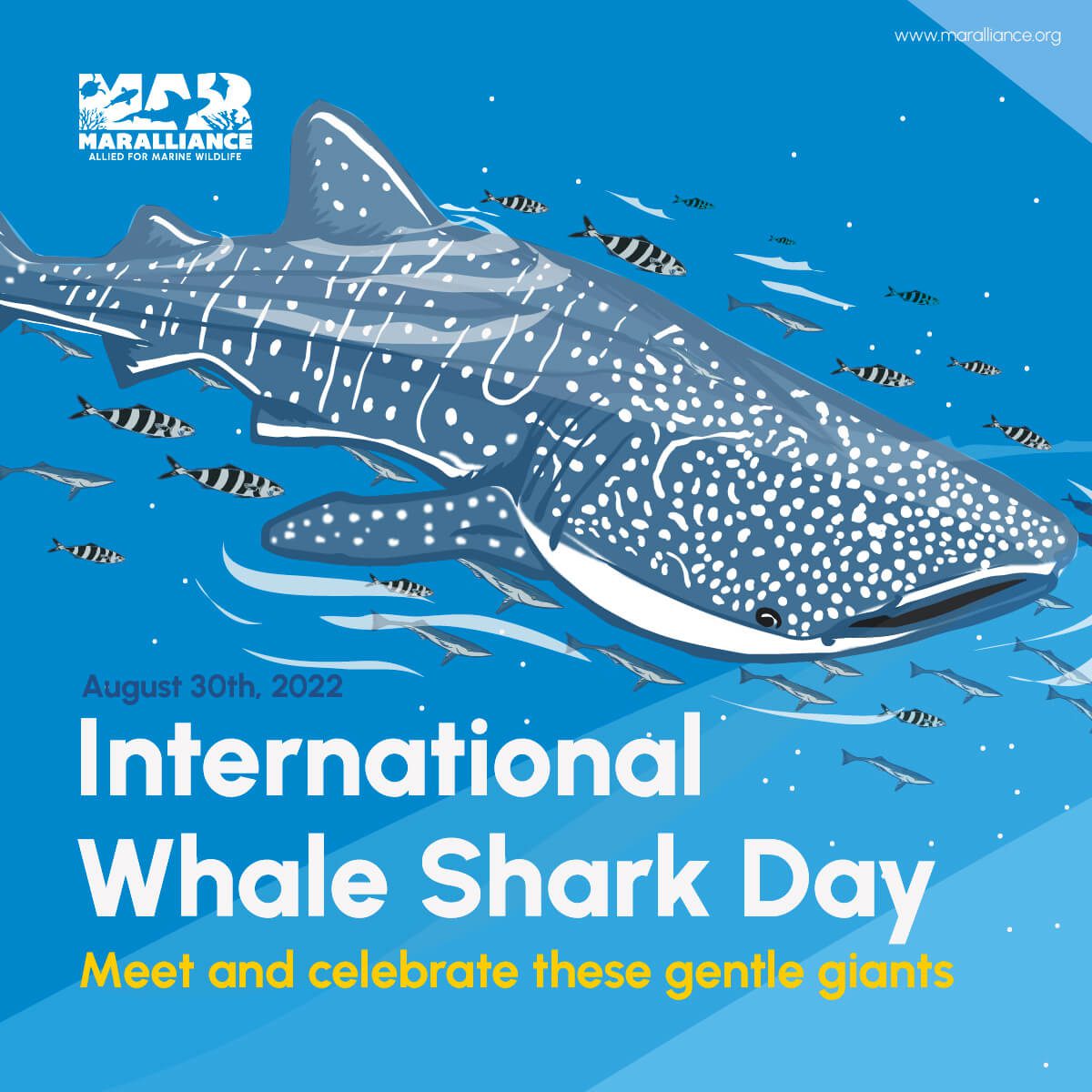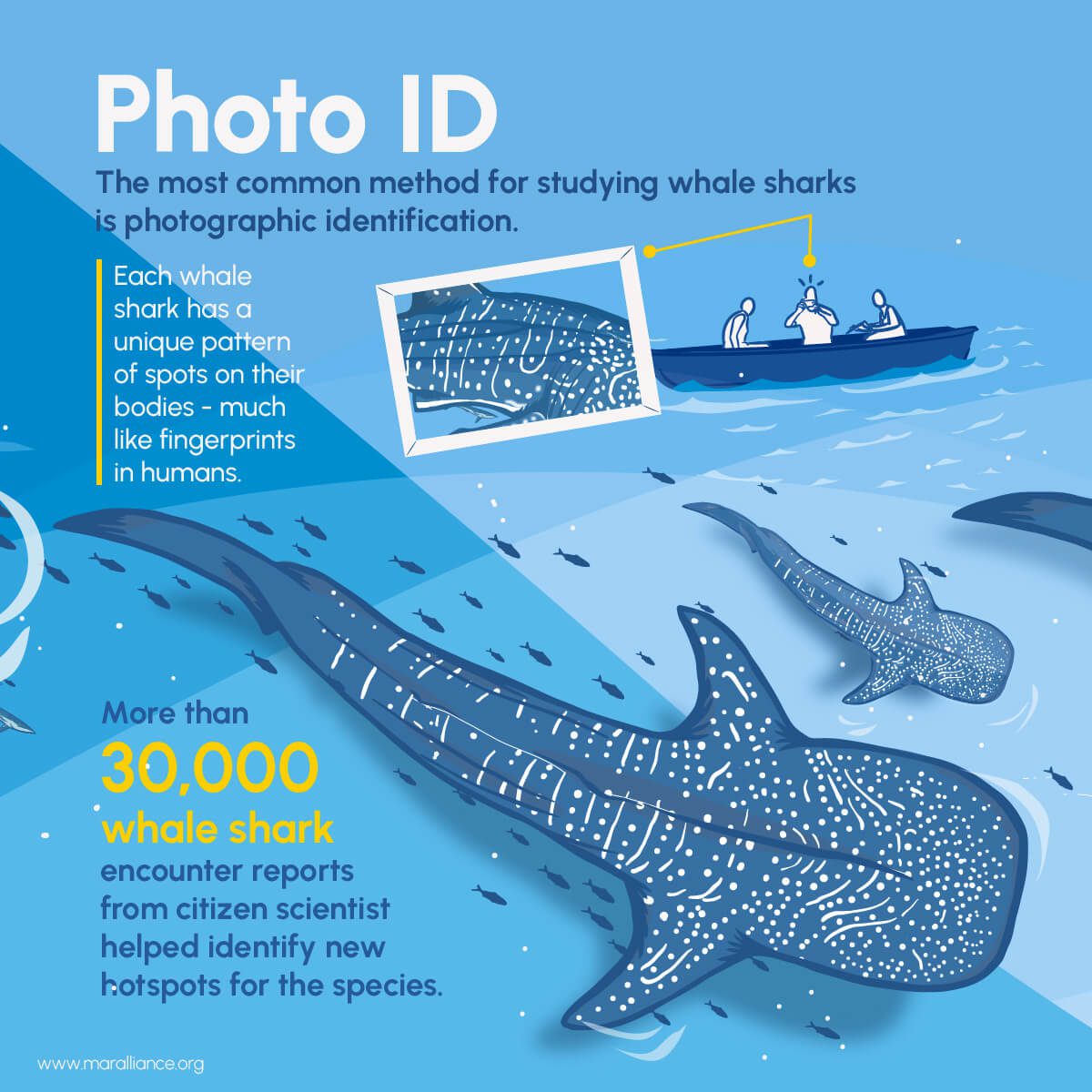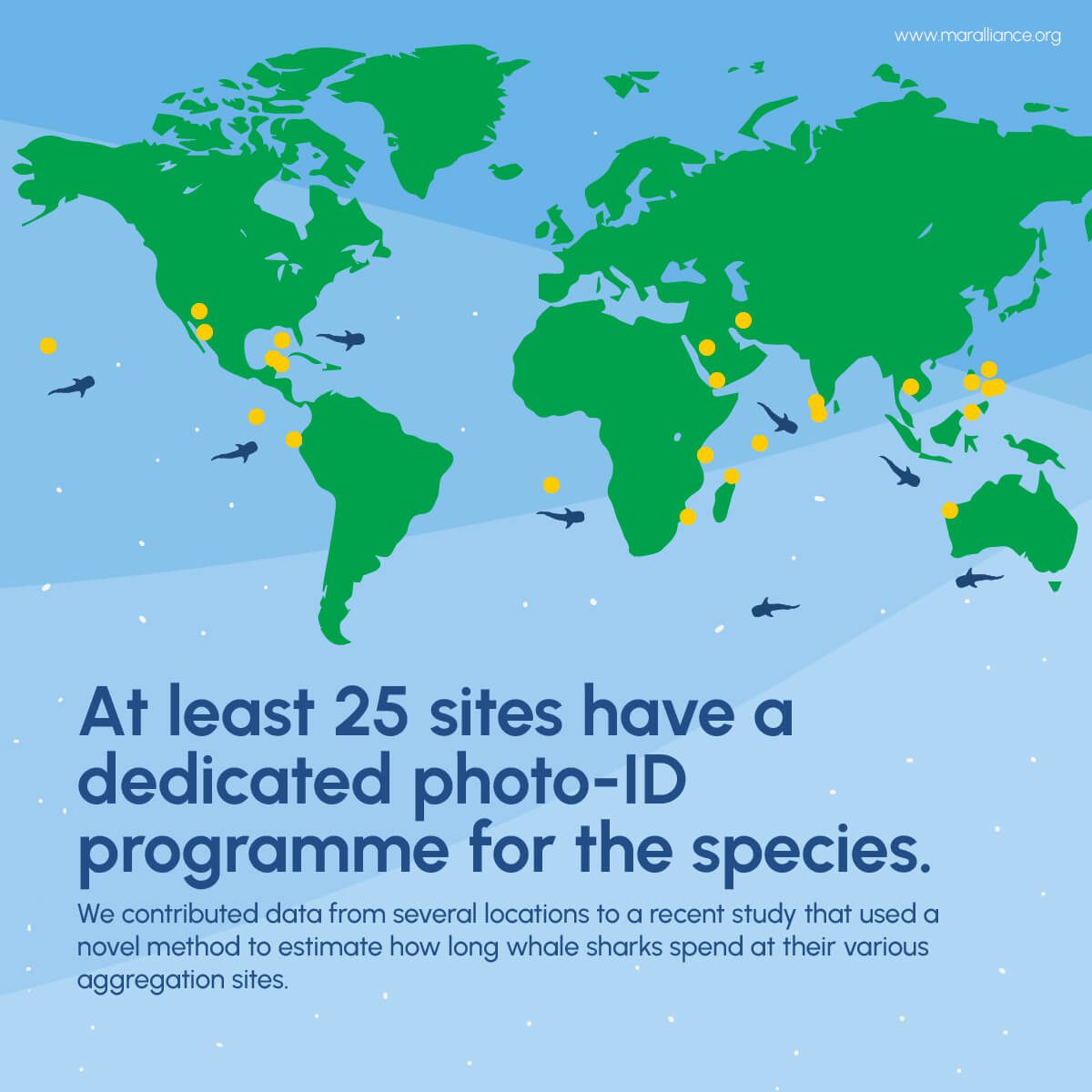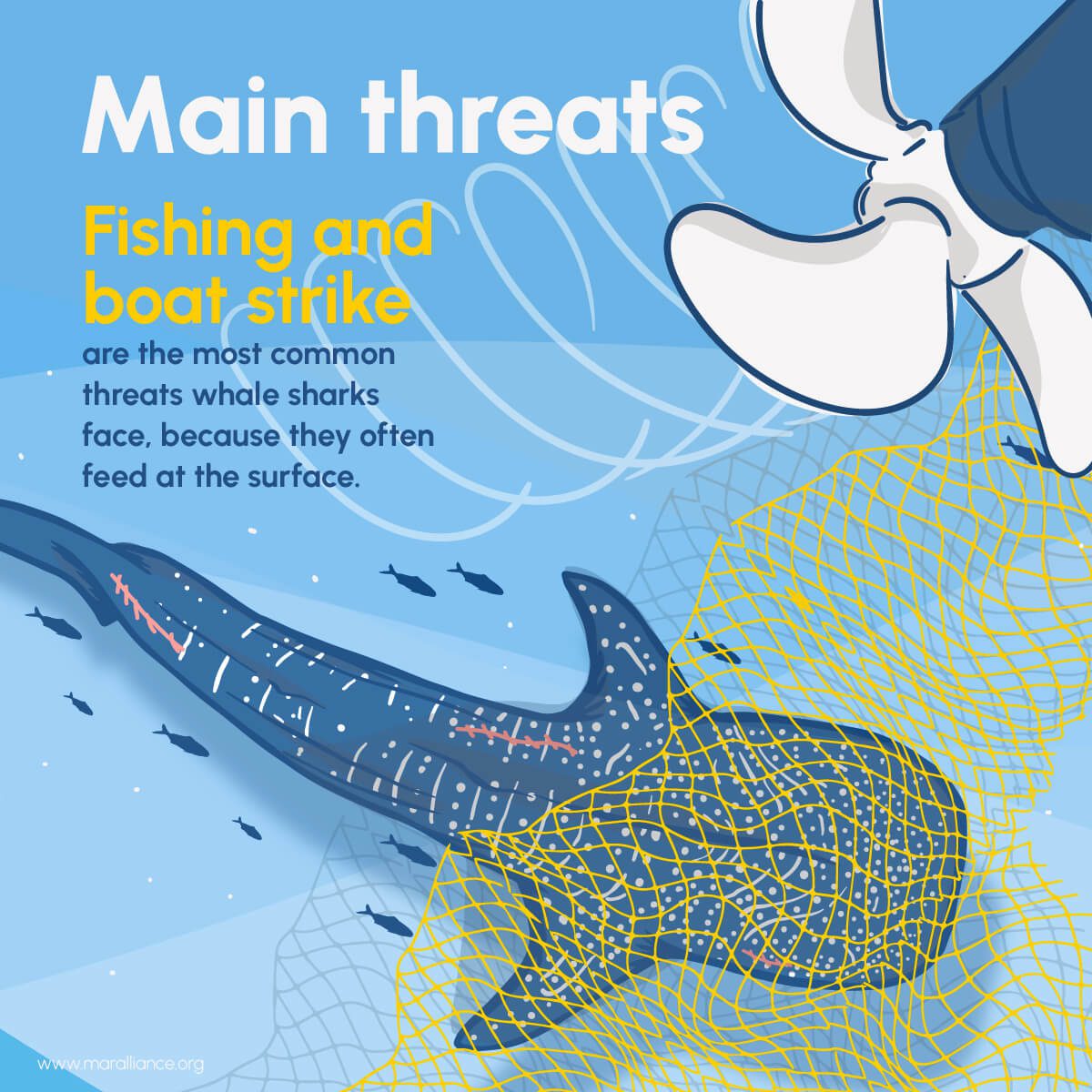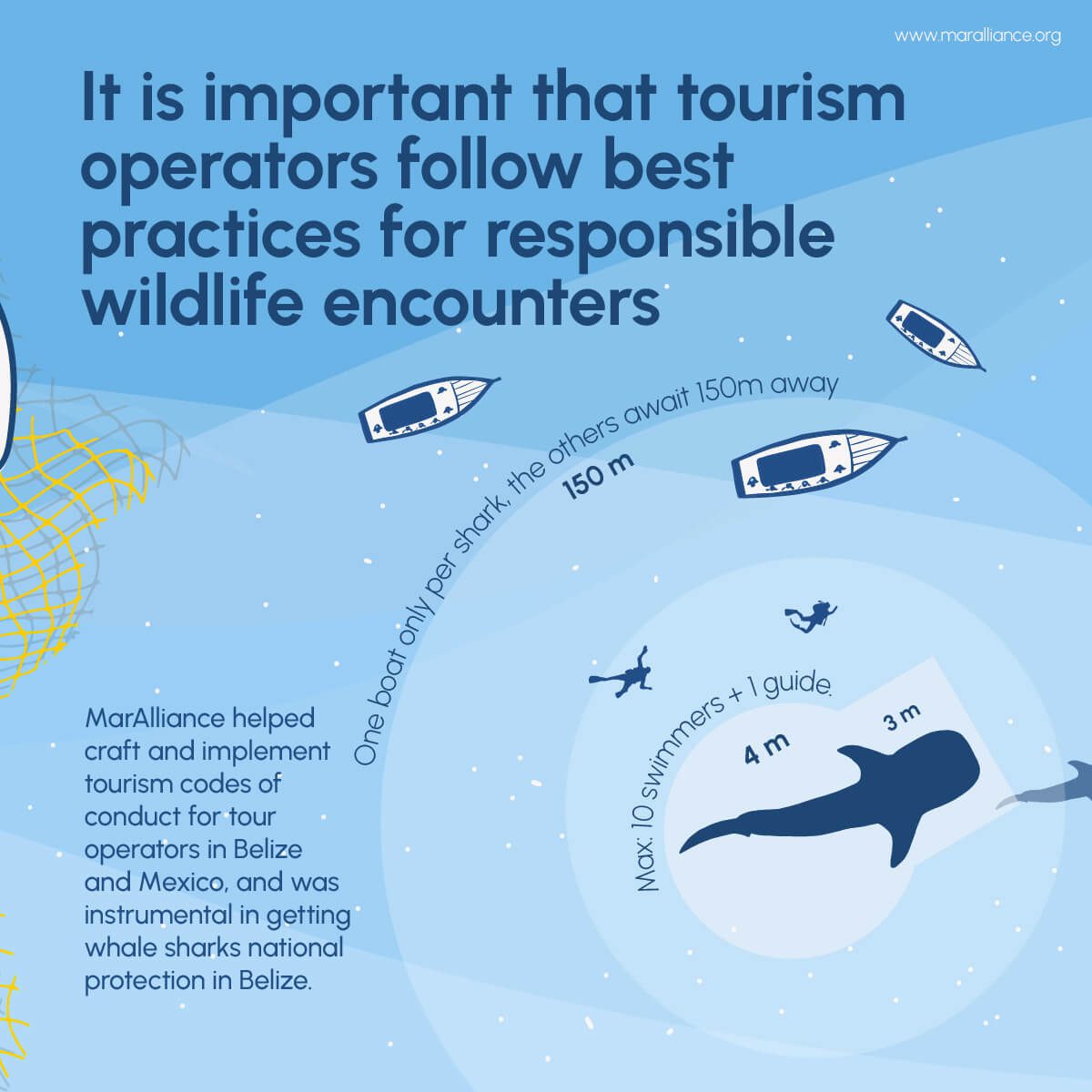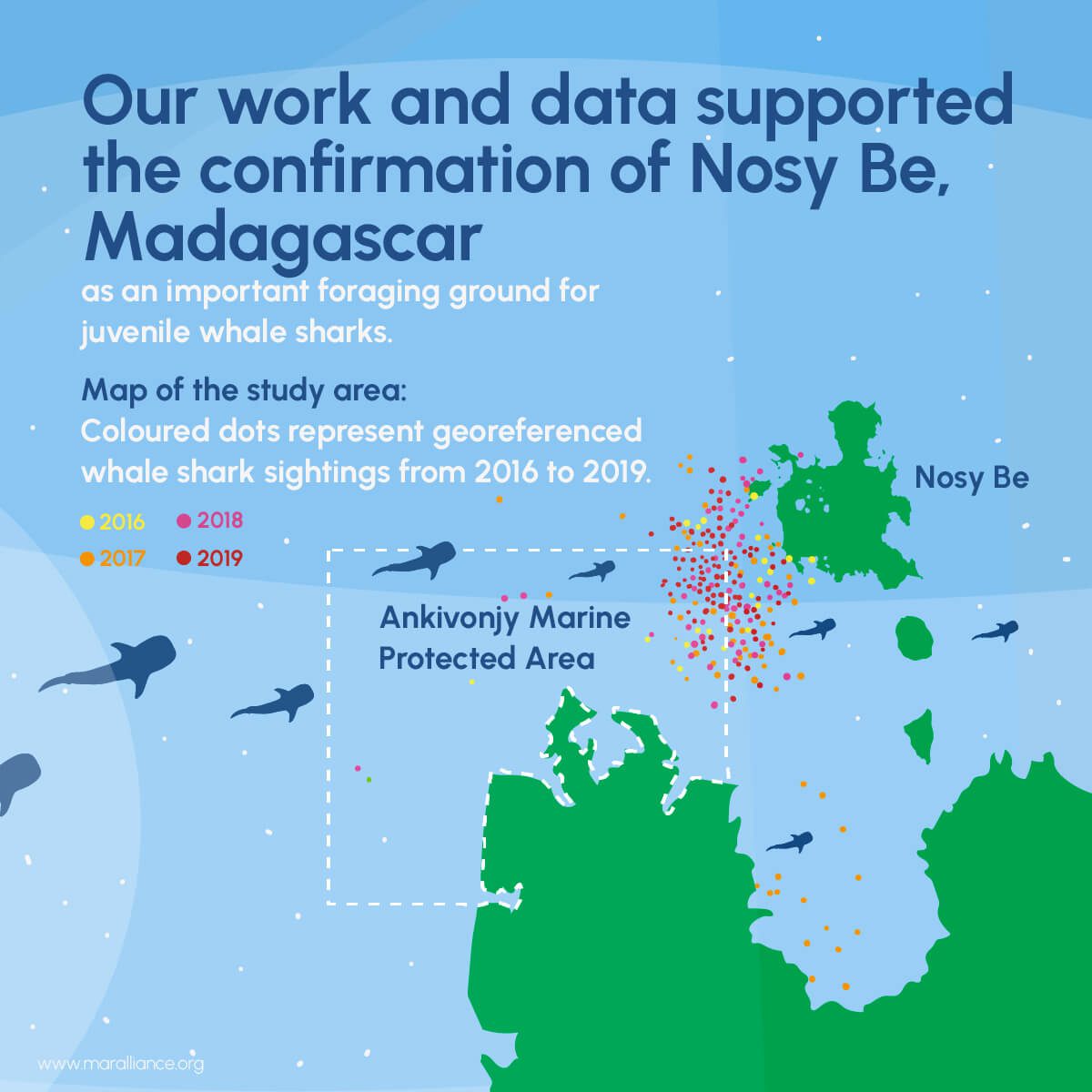International Whale Shark Day
Meet and celebrate these gentle giants!
We are frequently asked if whale sharks are whales or sharks. So, let’s get that cleared up first: whale sharks are definitely sharks. They cannot actively heat their bodies, have gills instead of lungs, and a relatively lightweight cartilaginous skeleton. In fact, they are the largest fish to roam our seas. Usually solitary in nature, whale sharks can aggregate in the hundreds to feed (and occasionally to seek a mate if mature!).
They are the lone members of the family Rhincodontidae, and yet their closest relatives are the relatively common shallow-dwelling nurse sharks, whom we affectionately call the puppy dogs of the sea for their benign and curious nature.
Whale sharks are only one of three filter-feeding shark species worldwide, with populations distributed primarily throughout the tropics. These largest of fish will often migrate vast distances to seek out seasonal pulses of high concentrations of microscopic zooplankton or other minuscule prey such as jellyfish or fish eggs.
During their movements, whale sharks tend to swim near or at the surface to feed on their tiny prey, but this habit also makes them vulnerable to ship strikes or capture in fishing nets. As their numbers have declined over the past decades, these gentle giants are now listed as “Endangered” to extinction under the International Union for Conservation of Nature (IUCN) Red List.
Yet, it is due in part to their predictable surface basking habits, that whale sharks are also an ideal flagship species for citizen science projects due to their unique spot patterns that help to differentiate individuals to establish populations sizes and migrations, and because of their charisma that drives an associated encounter tourism at over 15 known and accessible coastal aggregation sites.
We are proud to have contributed to the understanding and conservation of this inspirational species through research and monitoring that have provided new knowledge on their populations, dietary and environmental preferences, data for international collaborative research, catalysed community-based tourism, protective legislation including the creation or expansion of marine reserves. We look forward to continuing demand-driven work with whale sharks that helps to improve their conservation status.

